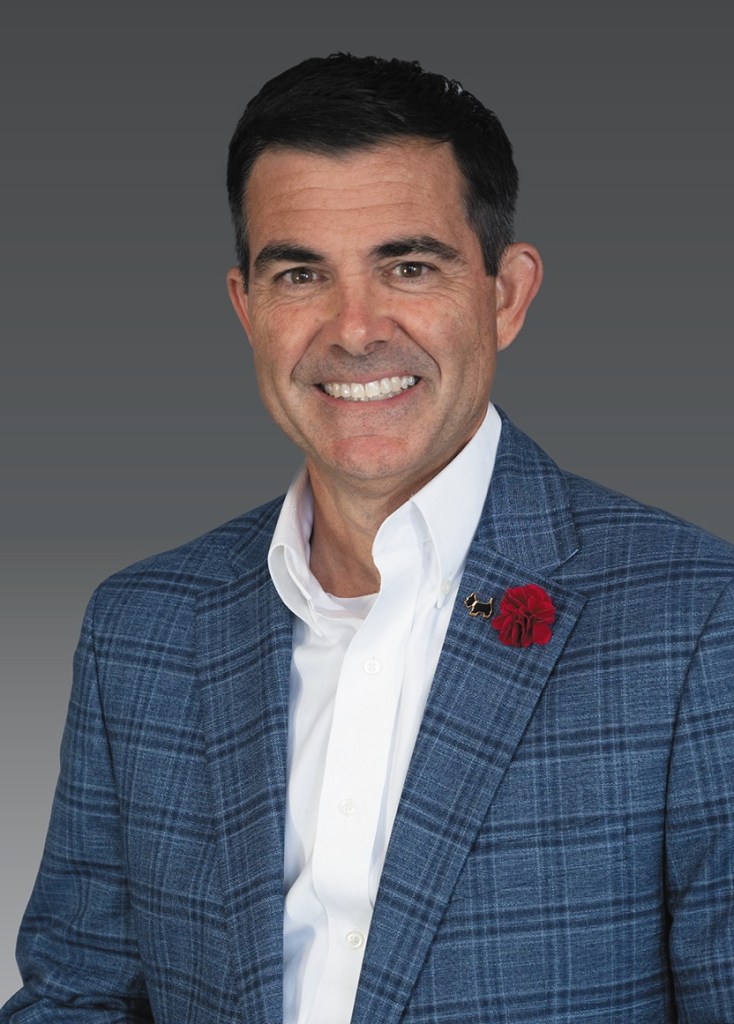Keeping Up with the Jonses’s
By: Susan L Hodges
Some agents might call David Wilgus obsessive. The secretary-treasurer of Wilgus Associates in Bethany Beach, Del., compares his firm’s budget against income and expenses as often as once a week. But just as many agents would probably express their admiration, because the more carefully you monitor expenses, the more room you create for profits.
“As an agency, you deal with a lot of twists and turns,” Wilgus says. Carriers may change their commission structures, and markets can soften, as they have recently. A major client could move his business elsewhere. “We try to stay in line from one year to the next with expenses, but we also have to consider premium volume,” he says. Since volume may be down in 2006, due to the soft market, expenses will have to decrease as well.
How does your agency manage its expenses? Do you benchmark against averages reported by Best Practices agencies or do you fly solo? Do you resist the temptation to figure contingency income into your budget, or do you count on it, assuring yourself that it will be there at year’s end?
Certainly every agency incurs some expenses over which it has little or no control. But others, if managed adroitly, can save an agency thousands of dollars each year. It’s important to realize that your agency probably has more control over some costs than you realize. Whether these include the mortgage on your building or the gasoline your producers’ vehicles consume, you can lower these costs.
Look at Labor
Cost-saving measures that Wilgus Associates follows run the gamut, from ensuring that windows are tightly closed in winter and that the heat is turned down at night to placing a smaller ad in the Yellow Pages and spending more on online advertising. The agency also works to maintain a pleasant office environment as a strategy to retain employees. “I have an open-door policy here so that anyone can come in and talk with me,” Wilgus says. The firm also has monthly birthday parties to celebrate employees. Observes Wilgus, “The mighty dollar can woo some people away, but if you’re close to your employees, I believe other things also come into consideration.”
Will Burke is another agency principal who puts serious effort into retaining employees and keeping them happy. As with most agencies, salaries are the largest expense, and the challenge is to add new business without increasing the head count. “We’d rather pay our existing service people more for doing more work than add to the staff,” Burke says. Because Burke Insurance Group of Las Cruces, N.M. is a specialty shop doing surety, each of the agency’s eight licensees can handle a larger book of business than they might if the agency sold multiple lines.
Presently, Will Burke is the agency’s sole outside producer. But if he hires another, Burke already knows how he will structure compensation: “We’ll pay a little bit more commission than other agencies, but we won’t pay anything extra: no car expense, no travel and entertainment. Whatever they choose to spend on these things will come out of their pockets.”
Considering that Best Practices agencies with revenues from $1.2 million to $2.5 million spend an average of 2.3% of revenues on T&E, conventions and automobile expense, Burke’s approach will have an impact. By following his example, an agency with $2.5 million in annual revenue could save $57,500 a year in producer expenses.
Jeff Peterson, director of operations for Christensen Group-Insurance Resources International, notes that the Minneapolis agency tempers its budget for items such as staffing and major technology purchases, on its profit margins— and not the other way around. “We don’t staff in anticipation to revenue, but in reaction to it,” Peterson says. Although existing service employees may see the need for another CSR, for example, the agency will not hire an additional one if revenue growth, compensation expenses and operating margin are not on target. Says Peterson, “In a softer market particularly, we watch expenses very carefully.”
On the other hand, Christensen Group- IRI will add producers when management’s analysis of markets shows the timing is right. The agency hired two new producers last year, with each hiring budgeted as a three-year investment. “We set money aside for this, and then we make it happen,” Peterson says. “Our philosophy is that adding producers will likely generate more revenue, and when it does, we’ll add [services and management] to support it.”
Money on the Table?
What other steps do agencies take to keep expenses as low as possible? Burke Insurance is working to rid itself of agency management system add-ons that it rarely uses. “I think a lot of agencies run into this,” says Burke. If you’re not regularly using capabilities that cost more, consider dropping them. And if you need extra administrative help, consider hiring college students. Burke Insurance tries to employ at least one college student year-round, and pays a relatively low wage plus mileage costs for making deliveries and running certain computer-generated reports.
Another step is to review your costs for telephone service and other utilities. Have you compared the cost of your phone connections to other carriers’ fees? The rise of Internet-based phone service is giving traditional phone companies reason to slash their rates and/or offer more services for no added cost. Review phone service costs at least annually, or more often when new offers come to the operation manager’s attention.
And what about bad debt? If your agency isn’t taking advantage of carrier-direct billing when offered, you’re leaving money on the table. Although direct billing isn’t usually available for accounts placed through wholesalers, your agency can still employ a collections firm if necessary to recover unpaid premiums. Recovering a percentage of bad debt, after all, is preferable to writing all of it off on the agency’s tax return.
Spend Money to Make Money
Once your expenses decrease, though, you should apply the savings to specific line items in your agency’s budget. For example, independent agencies currently spend an average of just 0.4% of revenue on training. That means a typical agency earning $3 million in revenues spends a paltry $12,000 on training annually. “Agencies should be spending more on training, especially now that people are expected to be more and more productive,” says Sharon Cunningham, president of BMG Consulting in Hartford.
In particular, send service employees to user-group meetings to ensure that they can use all the features of the firm’s agency management system. Using your system’s capabilities to the fullest can save thousands of dollars in time, paper and document storage. If you’re not yet using electronic imaging to become paperless, you’re needlessly curtailing customer service and probably sales, since CSRs have more time to spend on both when their procedures and processes are efficient.
At Abel Insurance & Associates, Ltd. in Kaukauna, Wis., Jackie Abel bases each year’s budget on the prior year’s expenses and makes increases according to trends in certain cost areas. She then includes any marketing projects that the agency plans for the coming year. “Marketing and advertising expenses are crucial to our success, and we will not cut them,” says Abel, agency manager and treasurer. The agency has dramatically increased its marketing activities in the past year, publishing its logo in more venues deemed to have good potential. “We do seem to be getting more notice,” Abel says. “We believe you must spend money to make money.”
Monitor, Monitor, Monitor
At the same time, the agency monitors its income monthly and the balance sheet and discusses income statement with the agency’s principals each quarter. Among the expenses that have increased lately: automation and the cost of utilities.
Rising costs in automation stem from increasing support fees and additional software that is necessary to control spam and other intruders. “The only way to compensate for this is to use our systems as efficiently as we can, train staff and attend user group meetings,” Abel says. The agency also relies on outside technical support. To push back against heightening electricity costs, Abel Insurance turns off as many lights as possible during warm months when air conditioning is required.
Although the agency management system generates all reports, Abel says she thinks it’s important to have some accounting knowledge in-house to make the information more useful and meaningful. “If this is lacking,” she says, “you may spend way too much time on accounting and bookkeeping when you could better spend your time doing what the agency does best: selling insurance.”
Because managing expenses is a larger and more exacting task than it once was, hiring an operations manager or a CFO is increasingly feasible for growing agencies. Of course, if you as principal can still keep expenditures on par with Best Practices agencies (such as all of those quoted here) while managing other aspects of the business, more power to you. But if expense management happens only when you have time to focus, you might do better by hiring a professional.
So tighten your grip on costs and spend more effectively. You’re working hard to earn it, after all, and a sharper focus should help you keep more of it.
Susan L. Hodges (hodgeswrites@aol.com) is an IA contributing writer.
Are Your Producers Overcompensated?
According to Sharon Cunningham, president of BMG Consulting in Hartford, independent agencies generally pay their producers more than large brokerages and bank-owned agencies. For example, an agency principal revealed that the agency paid producers 40% commission on renewal business. “Agents are afraid that their producers will quit if they lower their commissions,” Cunningham says.
The key, she says, is to lower renewal commissions gradually. By inching these rates down, say, 1% annually, you give your producers an opportunity to make up the difference in new business, the
growth of which is an important goal anyway.
At the same time, though, you should be moving your service employees toward more earned compensation. “The most profitable agencies are spending 50% on compensation and benefits, instead of the average 60%,” Cunningham says.
Power of Promotion
When it comes to trimming costs to shape up your agency, avoid the temptation to cut spending on advertising and promotion. “One of the first things that agencies often cut when profits slip is advertising, and that’s the last thing they should do,” says Sharon Cunningham, president of BMG Consulting in Hartford. Advertising not only has the ability to make your agency’s name a household word; it also projects success. It’s a prime example of the famous movie quote, “If you build it, they will come.” An attitude of success breeds consumer confidence that, in turn, produces more business.
To test the effectiveness of your various advertising methods, experts advise placing ads for at least three months consecutively and training your employees to ask each new customer how they learned about your agency. You’ll quickly determine which media produce the most bang for your buck.
Also be sure to produce a regular stream of news releases. Whether your agency hires a new producer, signs a contract with an additional carrier or moves to a new location, sending releases to newspapers, radio stations and trade publications will produce free publicity and possible interviews. Send releases via e-mail and also post each one on your agency’s Web site.









